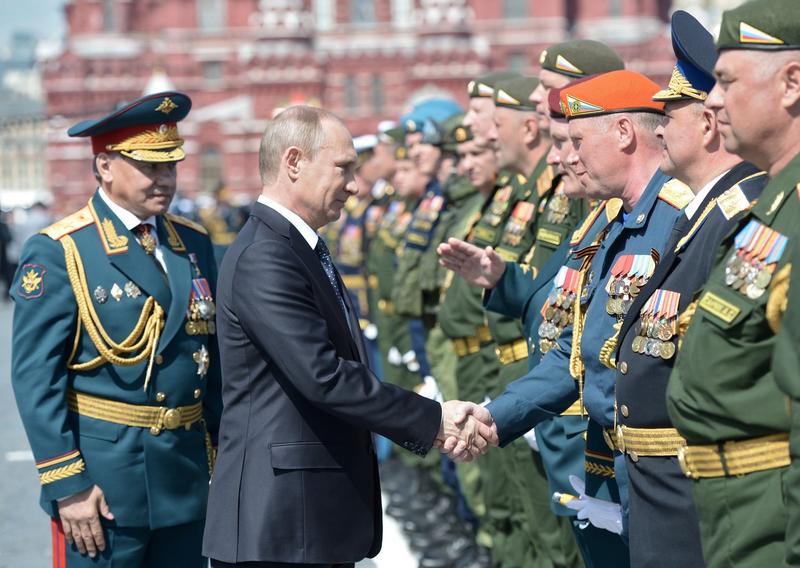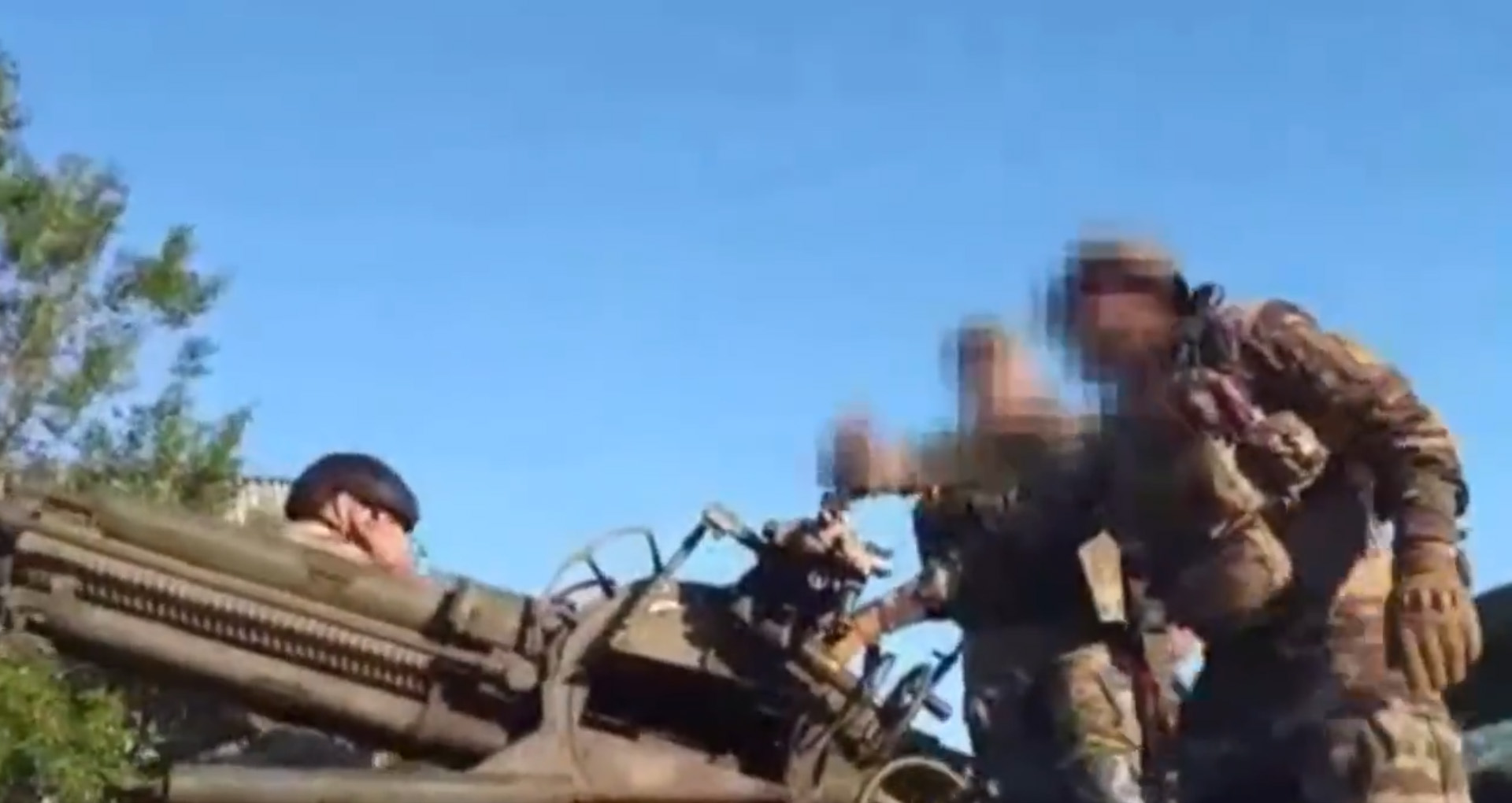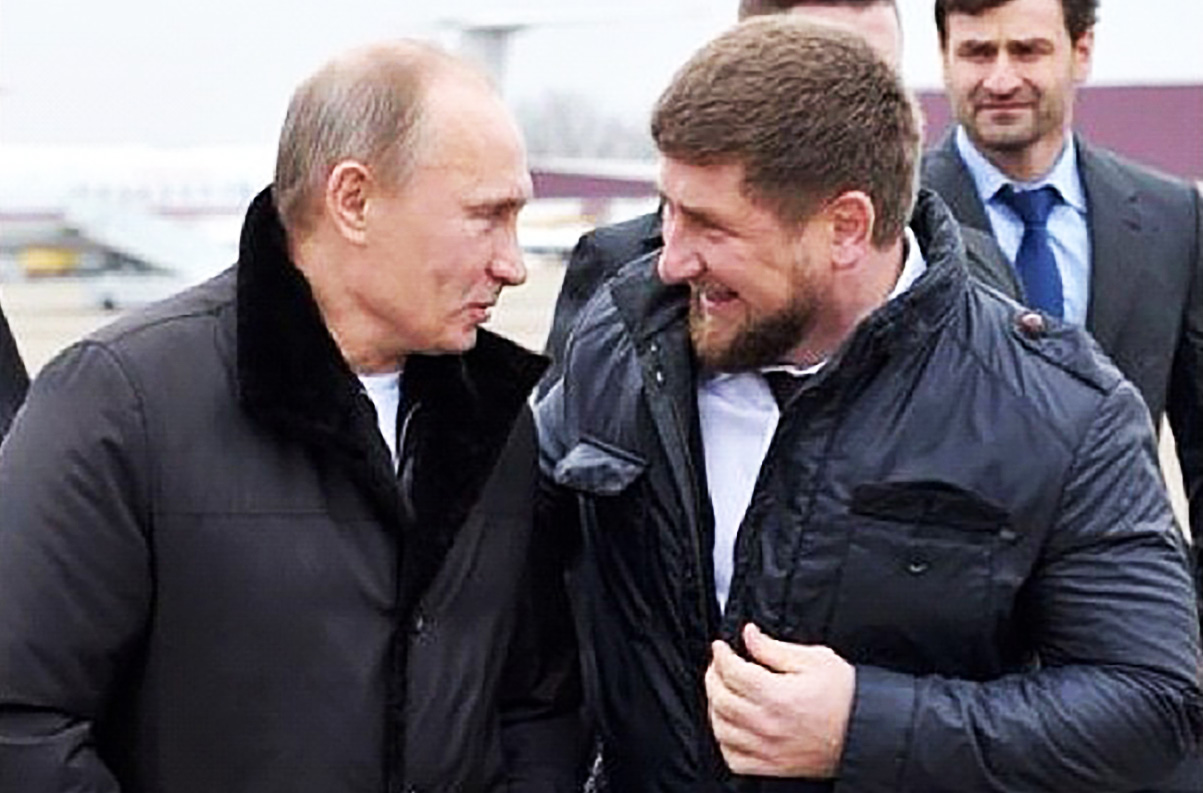
80% of the population identify as ethnic Russians or Slavs, but the country is also home to more than 160 other ethnic groups – and tensions between minority groups and the state are re-emerging, especially as the war in Ukraine intensifies, Al Jazeera reports.
In March, President Vladimir Putin awarded Nurmagomed Hajimagomedov the title of Hero of Russia and used the occasion to celebrate Russia’s ethnic diversity.
Gadzhimagomedov, a senior lieutenant from Dagestan, served in the Russian Air Force and was killed in action in the early days of the Russian war in Ukraine.
“I am Russian,” Putin declared as he announced the highest honor. “But when I see such examples of heroism as this young man, Nurmagomed Hajimagomedov – a native of Dagestan, a Laktian by nationality, I want to say: “I am a Laktian, I am a Dagestani, I am a Chechen, an Ingush, a Russian, a Tatar, a Jew, a Mordovian, an Ossetian.” .
He praised Gadzhimagomedov for his fight against Ukrainian “neo-Nazis”, adding that “I am proud to be part of this world, the strong and multi-ethnic people of Russia.”
Minority rights, according to the Kremlin, are the basis of Russia’s so-called “special operation” in Ukraine, which is officially called “special operation”.
Putin and his administration have consistently pointed to the alleged mistreatment of Ukraine’s Russian-speaking minority as the reason for the invasion.
Minorities have the most casualties in the war in Ukraine / Infantry formed from soldiers from poor regions
Meanwhile, at home, around 80% of the population identify as ethnic Russians or Slavs, but the country is also home to more than 160 other ethnic groups – and tensions between minority groups and the state are re-emerging, particularly because of the war in Ukraine. strengthening.

Vladimir Putin and Russian Defense Minister Sergey Soigu (behind him) Photo: Oleksiy Nikolsky / Sputnik / Profimedia Images
According to open source researchers, soldiers from poor regions such as Buryatia and Dagestan are disproportionately represented among Russian casualties in Ukraine.
“Most soldiers and officers of the ground and airborne forces come from poor Russian towns and villages,” military specialist Pavlo Luzin told Al Jazeera.
“This socio-economic stratification has a long tradition in the Russian armed forces, as relatively well-educated urban youth serve in other branches of the military … but the infantry is composed of poorly educated soldiers from poor families and regions.”
- Read also: Russian soldiers died in Ukraine: young, poor and from national minorities
“The Buryats will not fight in this criminal war”
Buryatia in Siberia was once part of Mongolia, which was conquered by the Cossacks in the 17th century.
“We cannot define our policy – if we had a real federation, the head of our republic could say no, the Buryats will not fight in this criminal war. But he continues to give Putin cannon fodder,” said Victoria Maladayeva from Free Buryatia Foundation for Al Jazeera.
“Buryatia, like other ethnic republics, is governed by Moscow’s colonial policy,” Maladayeva continued.
“Our language and history are disappearing from the face of the earth, and Moscow is sucking all the money and resources from the province. Moscow is a beautiful city, but it is only a facade, because if you go a little further, the houses are falling down, there are no roads, there are no jobs.”
Shortly after the war began, Maladayeva, who now lives in San Francisco, joined with other members of the Buryat diaspora to create the Free Buryatia Foundation, the first peace movement led by ethnic minority leaders.
In addition to calling for greater autonomy from Moscow, the group makes anti-war videos, investigates the loss of Russians in Ukraine, creates a community for like-minded Buryats and helps future soldiers avoid being sent to the front.
In July, the foundation said it had helped 150 Buryat soldiers find loopholes to leave the war, allowing them to return home.
“Contractors [soldații] and their families always write to us saying that they do not want to fight, but there are many obstacles in the way. Some of them are kept in the occupied territories [din Ucraina] and they are pressured, threatened, afraid that they will be sent to the front lines to be killed,” Maladayeva said.
“When they declare their refusal, they are asked: “And who will defend the Motherland?”. They answer that if someone attacks the Motherland, they will defend it, but they do not see the Motherland in Ukraine.
“We know that we cannot influence Vladimir Putin directly, but the less cannon fodder he has at his disposal, the sooner this war will end,” she says.
Volgograd became one of the most killed in the war in Ukraine
“And Volgograd, captured by the Soviet mentality, is the poorest city in Russia with a population of over a million inhabitants. Saratov, which is stuck in the tsarist empire, is not doing much better, with very low salaries and a low quality of life for a large regional center,” explains Kamil Galeyev.
An investigation published by Mediazona investigative journalists at the end of April found that most of the Russian soldiers who died in Ukraine were from two of Russia’s poorest regions: Dagestan and Siberia.
The Volgograd region was in third place in the rating.
The first female military service member of the Russian armed forces, whose death was confirmed during a “special operation” in Ukraine, was from the city of the same name in the former Soviet Stalingrad.

Buddhist religious service on the Ukrainian front
Dagestan and Buryatia, the republics with the largest number of lost soldiers
Mediazona journalists also report that Russia has also lost at least 500 soldiers of elite forces, including marines and special forces, as well as at least 20 pilots.
Geographically, Dagestan, a republic in the Caucasus with a majority Muslim population, like neighboring Chechnya, recorded the most casualties, with 125 soldiers killed in action.
Dagestan was followed by Buryatia, a republic in southern Siberia east of Lake Baikal, which reported 85 deaths. In the Volgograd region in the south of Russia, 66 dead soldiers were recorded, Mediazona reports.
Dagestan and Buryatia are the two poorest republics in Russia with GDP per capita, close to Bhutan and the Republic of Cape Verde, respectively.
Photo of a Buddhist prayer in Ukraine with Russian soldiers from Buryatia. https://t.co/hIyICgjuah pic.twitter.com/xpA962R2PC
— Rob Lee (@RALee85) April 20, 2022
“I call it the Federation of Racists”
Even bloodier than the conquest of Siberia was the conquest of the Caucasus in the 19th century, an area that includes Chechnya, Dagestan and the territory of modern Sochi.
The entire Circassian people were expelled to Turkey, and those who remained to fight for their land were slaughtered.
Then, under Joseph Stalin in the 20th century, almost the entire Chechen population was deported at gunpoint to the steppes of Kazakhstan when they were suspected of disloyalty during World War II. Tens of thousands of people died on the way, and those who survived were allowed to return only after Stalin’s death.
“The level of chauvinism in Russia is very high,” Chechen lawyer and human rights activist Abubakar Yangulbayev told Al Jazeera.
“I even call it the ‘Racist Federation’ because it perfectly reflects the inner essence of the state, both among Russians and among officials,” he says.
In the 2000s, racist attacks by violent gangs of neo-Nazi skinheads became commonplace; At their peak in 2008, they committed 110 murders, according to Sova, a Moscow-based hate crime watchdog.
Since then, the ultra-nationalist movement has waned, but less lethal everyday racism persists. Since last year, landlords in Russia can declare on the Internet that they rent “only for Slavs.”
“I think every non-Russian has faced this, we always face discrimination,” Maladayeva said. “Once my mother forgot her passport, and the police detained her for five hours because they did not want to believe that she was a citizen of Russia.
“I lived in St. Petersburg, where I participated in a beauty contest, and in social networks they always wrote that I should put my head in the toilet and: “In general, why is Petra being presented as a fool?” – she says.
Chechens loyal to Putin are a “minority”
Chechnya briefly gained independence after a bloody war in the 1990s, but was retaken by Russian forces, who brought in ex-rebel Akhmad Kadyrov to quell the remaining armed rebellion.

Chechen soldiers are fighting on the side of Ukraine
His son, Ramzan Kadyrov, is now the head of the republic, and under his leadership, cases of torture, disappearances and illegal imprisonment are regularly reported.
“Yes, there are Chechens who are loyal to Putin and Kadyrov, Kadyrovites, but this is a minority that is not respected among people, because they are considered privileged traitors of their country,” said Yangulbaev.
“These people are armed and use torture, executions and kidnappings to suppress popular unrest with Putin’s permission or tacit consent, and on Kadyrov’s orders. They are rewarded for this, but they are never brought to justice for the crimes they committed,” says Yangulbaev. .
Kadyrov is a close ally of Putin and supports the Russian invasion of Ukraine by thousands of fierce Chechen fighters.
But it is also a sign of the divided Chechen society that there are two battalions of Chechens fighting for Ukraine, including veterans of previous wars, who are eager for another chance against the Russians.
Yangulbayev said in Chechnya: “The memory of two bloody wars with Russia is still fresh, and people are often against going to die for such a country, as evidenced by the numbers: at the moment there are only 1,340 volunteers from Chechnya.”

Putin and Kadyrov (photo: East2West News / WillWest News / Profimedia Images)
Some Chechens are so reluctant to join the military that, according to opposition activists and bloggers, the authorities are recruiting labor for Ukraine through threats, blackmail and intimidation.
“I know examples of recruiting people by blackmail, but such cases are few. But positive blackmail, when someone is promised to remove a criminal record in order to participate in the war, is widespread. This is evidenced by the numbers. what we gathered: almost 30 percent of all volunteers have unexpunged criminal records,” said Yangulbaev.
Elsewhere, army recruiters are reportedly promising cash bonuses for short terms of service, a tempting offer in poor cities and provinces with few opportunities outside military service, such as Dagestan, where unemployment is three times the national average. (Al Jazeera)
Russia continues to hide the number of dead soldiers in Ukraine
This figure exceeds the one presented in the latest balance sheet announced at the end of March by the Ministry of Defense in Moscow, which refers to 1,351 dead and 3,825 wounded.
But the true toll is believed to be much higher, with British Defense Secretary Ben Wallace estimating on Monday that around 15,000 Russian troops have so far died fighting in Ukraine, while Ukraine’s military said early Thursday that its forces had killed around 22,800 Moscow troops.
On April 20, the Russian military proposed a set of measures to declassify information about the losses recorded in Ukraine, demanding that compensation to the relatives of the dead be carried out by the military, and not by civilians, as before.
Source: Hot News RU
James Springer is a renowned author and opinion writer, known for his bold and thought-provoking articles on a wide range of topics. He currently works as a writer at 247 news reel, where he uses his unique voice and sharp wit to offer fresh perspectives on current events. His articles are widely read and shared and has earned him a reputation as a talented and insightful writer.